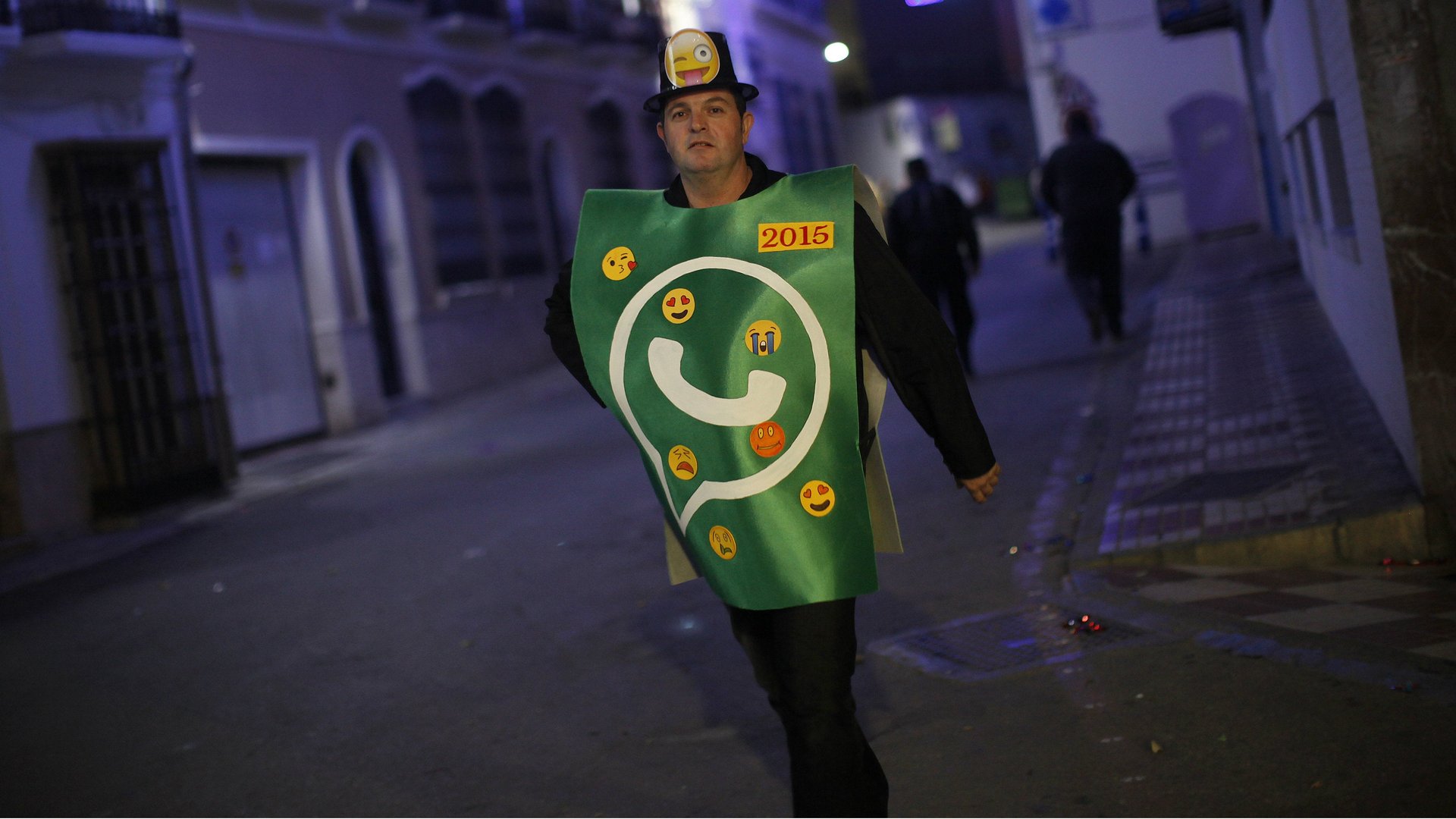Why WhatsApp bombed in the US, while Snapchat and Kik blew up
This post has been corrected.


This post has been corrected.
The United States often leads the world’s consumer internet trends, popularizing cornerstones of the web such as Google search and social networking via Facebook. But when it comes to mobile messaging, the country is far behind.
WhatsApp, Line, and WeChat, despite remaining mere “texting apps,” have entered the zeitgeist in their dominant markets, both numerically and culturally. In Brazil, for example, WhatsApp has an estimated penetration rate of 70% among smartphone owners, who use it to sell products, promote political candidates, and replace work email. In India, where WhatsApp has over 70 million monthly active users, the app has become so popular that doctors are using it to keep in touch with patients. Line has 53 million monthly users in Japan and 17 million monthly users in Taiwan (about 80% of the latter’s total population), and recently earned $234 million in quarterly revenue, largely by shilling virtual goods for games. And then there’s WeChat, which has over 600 million monthly active users in China, and is quickly evolving into a new kind of operating system that facilitates e-commerce, digital publishing, and even the “internet of things.”
No chat app has reached equivalent heights in the US. But chat apps’ slow uptake in the US isn’t caused by tech-averse dinosaur Americans. Instead, it’s because sending SMS text messages in the US over phone lines has been essentially free for a long time, unlike in most of the rest of the world.
The top three carriers in the US have offered free voice calling and free SMS with almost any phone bundle since as far back as 2010, according to the research firm Ovum. This is a stark contrast to most other markets, particularly developed European countries, where telecoms long charged hefty fees for texting and only recently began lowering them. In Spain, for example, text messages can cost €0.15 (17 US cents) for each message sent off of one’s network.
Americans might not notice it, but they are also actually sending SMS’s less and less. Data from Ovum given to Quartz shows that SMS volume in the US has been declining since 2011.
But that decline hasn’t come as early or as fiercely as it has in other wealthy markets. Ovum singles out Singapore, Denmark, Spain, and the Netherlands as markets that have particularly suffered from WhatsApp’s popularity. It also predicts that emerging markets like Brazil, Mexico, and China (where chat apps have dominance) will soon experience declines as well.
Apps like WhatsApp, Viber, and Line can enter Asian or European countries and go from zero to millions of users with a simple value proposition: free text messages. But in The US, that value proposition meant nothing.
So it stands to reason that the two most popular chat apps in the US (excluding Facebook messenger) got big for reasons other than free SMS. Snapchat and Kik both offer privacy, or at least appeal to a teenager’s concept of privacy.
Whereas WhatsApp and Viber bind accounts to phone numbers during registration, Kik allows users to register using only a username, which can be anonymous. One benefit of this is that it lets adolescents with no phone numbers (or just an iPad) sign up. But it also accommodates catty teenage socializing—when Susie dumps her boyfriend Steve for someone else, she can simply block him from Kik, knowing he won’t still have her number. Snapchat also requires just a username to register, but by centering itself around fast-disappearing photos, it opens the door for all sorts of shenanigans best suited for fleeting relationships.
Going forward, however, if Kik and Snapchat aim to to become the WeChat of the West, destroy SMS, and rival Facebook as the next great social app, they must do more than add features like e-commerce and media. They also have to add more users—particularly older Americans, who still have no reason to switch over from already-free text messages.
If they can’t, someone else will—namely Facebook. The company’s Messenger chat app is also set to aggressively emulate WeChat, as evidenced by its hire of a former PayPal executive (a hint that its focus will be on buying stuff) to lead up the product. But if Americans continue to cling to free texts, even Facebook will all have its work cut out for it.
(Correction: An earlier version of this post said that text messages can cost €15 in Spain, instead of €0.15, and used incorrect numbers for SMS volume in two charts.)